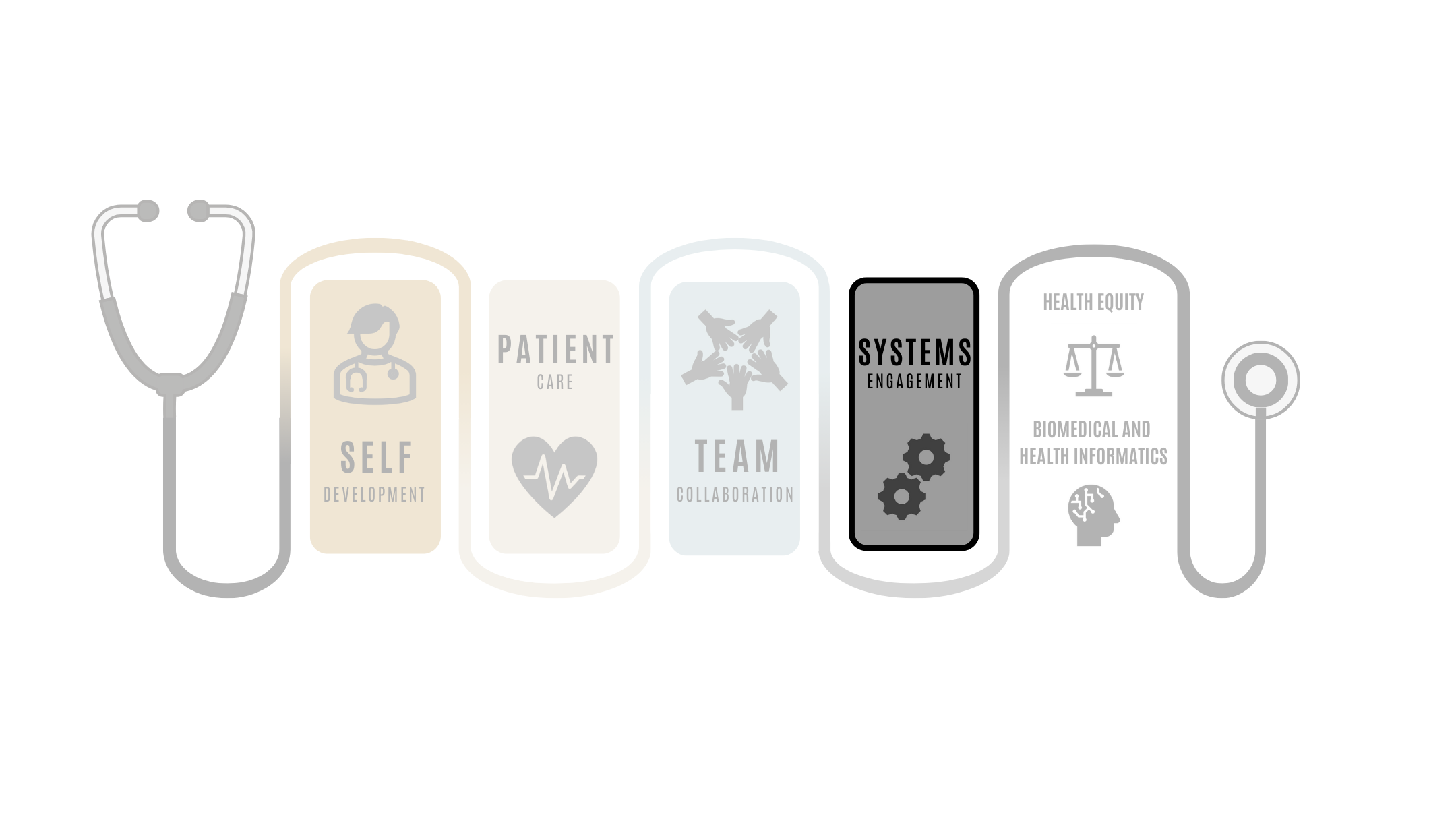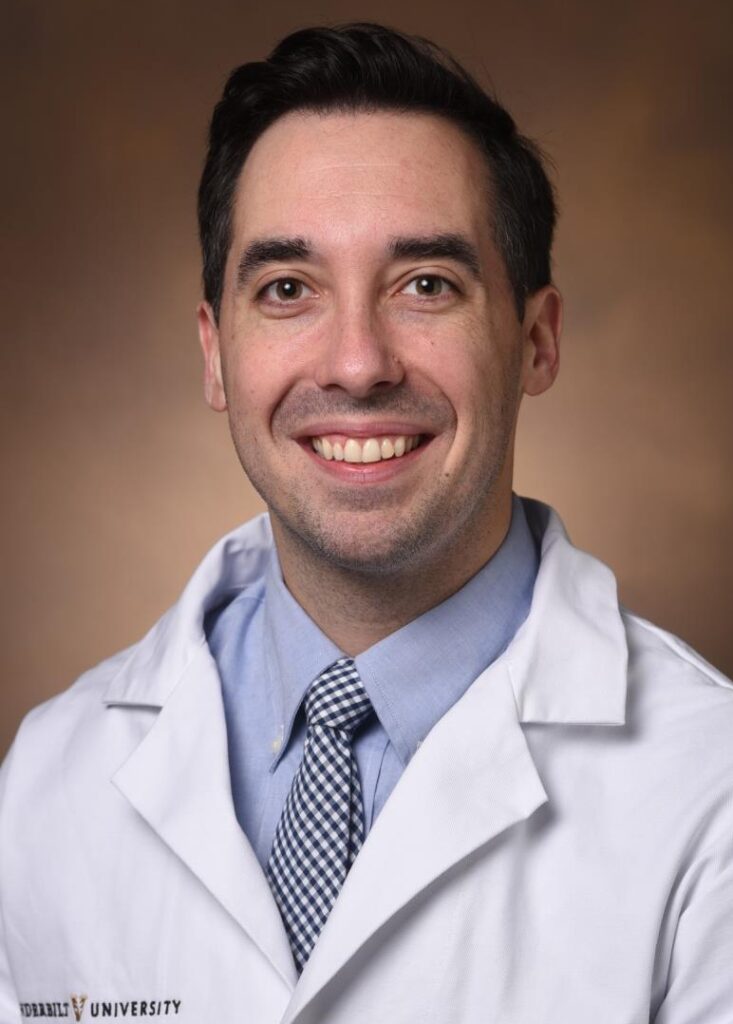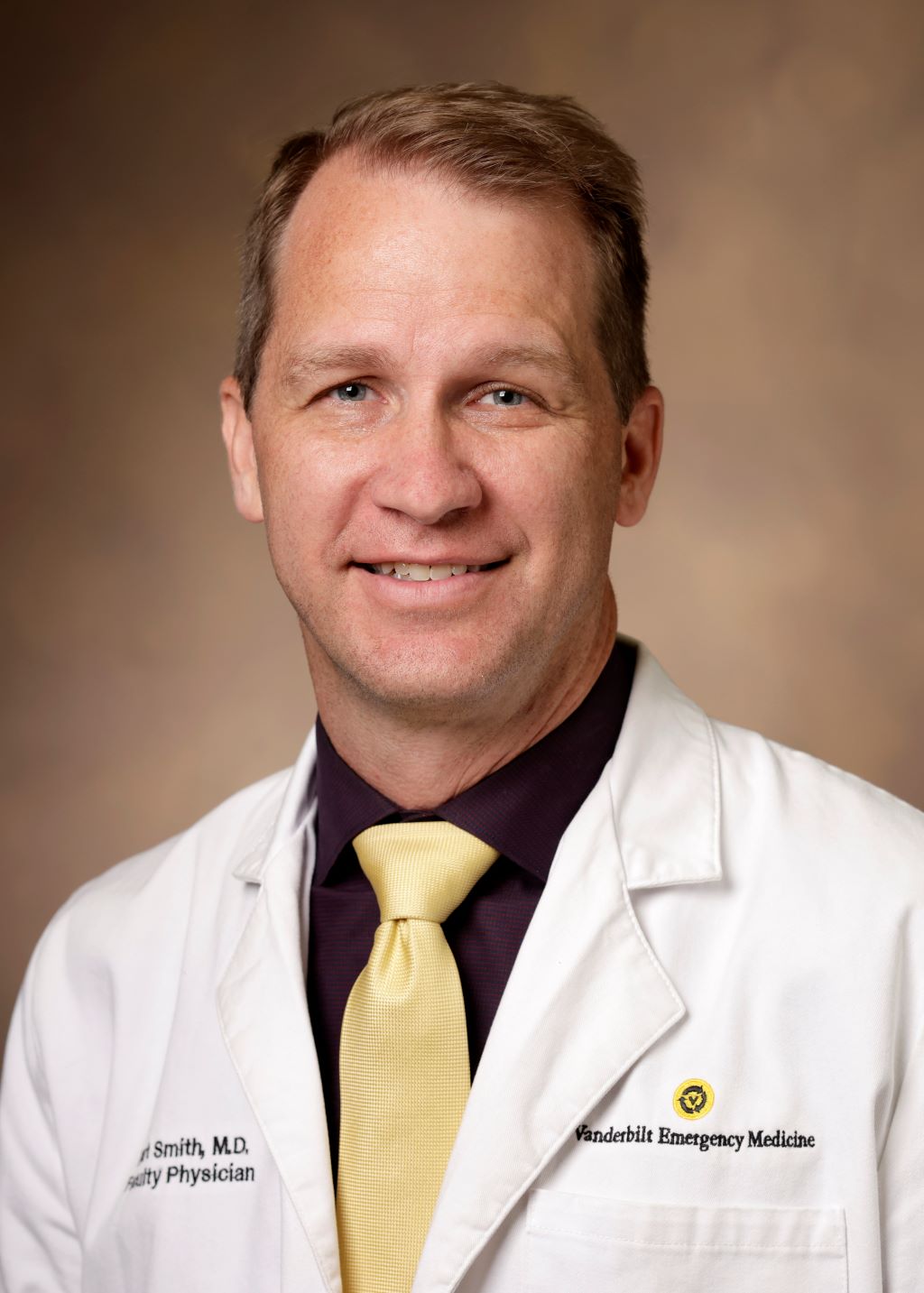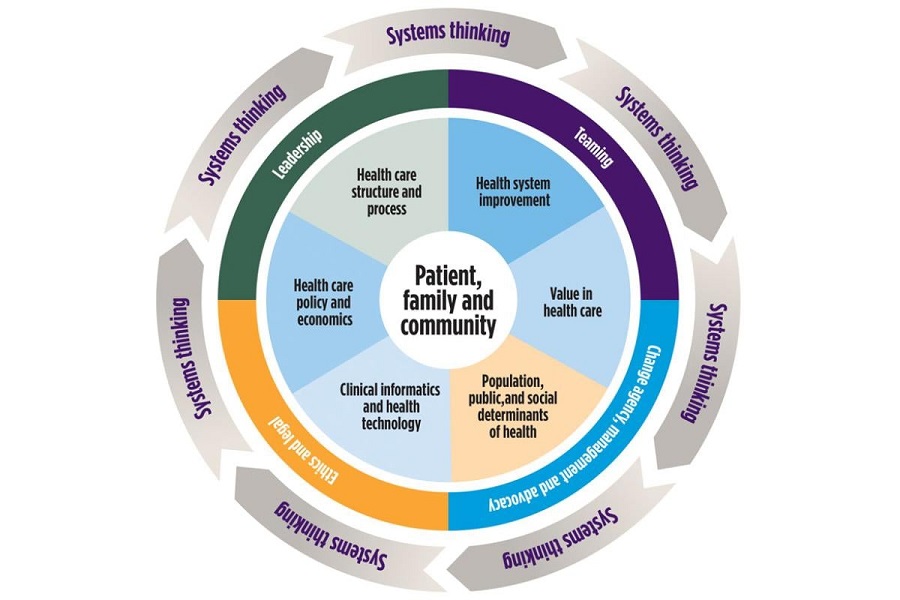Foundations of Physician Responsibility – Systems
Foundations of Physician Responsibility – Systems Engagement

Welcome to Health Systems Science
Modern healthcare has come a long way from a doctor, a patient, and a treatment plan. With the modern specialization and complexity of healthcare delivery, a diverse set of interconnected systems now exist in order to carry out optimal healthcare. Unfortunately, sometimes these complex systems can result in difficulties for patients and providers as they navigate a treatment path.
FPR: Systems Engagement introduces students to the elements of the American Medical Association’s Health Systems Science conceptual model. Health Systems Science recognizes there are a variety of structures that should work together to benefit the patient. Health systems thinking incorporates the design, implementation, improvement, and coordination within and between these systems. Being trained in this model will help you better meet the needs of a changing 21st century healthcare landscape.
How is Health Systems Science Taught in Year 1?
FPR: Systems Engagement begins with Health Systems Science (HSS), where you will explore the healthcare system, discovering its inequities and highlighting its successes. The FPR: Systems Engagement curriculum guides you through some of the complex systems that make up healthcare, such as insurance programs and health care policy, under the guidance of professionals in those fields.
The course starts by examining the macrosystems (private insurance systems, Medicaid and Medicare, health policy) of health care. You will also consider the experience of individual patients in Case-Based Learning seminars to see how smaller systems of care (public transportation, transitions of care, cultural networks, local healthcare policy, hospital networks) affect the ability of providers to give care, as well as modify how patients navigate their illnesses and routine care. Throughout each session you will develop “systems thinking skills,” enabling you to understand and analyze systems. The first-year curriculum prepares you for success in clerkships and is foundational for projects such as quality improvement initiatives in subsequent years.
As you move through your clinical years, you will continue to examine how these systems can be leveraged to improve patient care, including how quality and safety are measured and improved in healthcare settings.
FPR Co-Course Directors, Systems

John A. Graves, PhD
Professor of Health Policy and Medicine
Professor of Management
Vanderbilt Owen Graduate School of Management
Vanderbilt University School of Medicine

Ryan J. Buckley, MD
Associate Professor of Clinical Medicine
Director, Medical Innovators Development Program
Director, Miller Society
Vanderbilt University School of Medicine

Kurt A. Smith, MD
Associate Professor of Emergency Medicine
Vanderbilt University School of Medicine
For more information about HSS, please email us at fpr@vanderbilt.edu.

